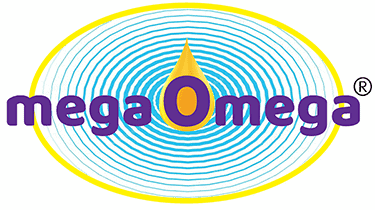
Am I getting enough
Omega-3?
Omega-3 fatty acids are essential for the body and play a vital role in heart, brain, eye, joint, immune and hormonal health.
DHA and EPA, in particular, support healthy cell membranes, reduce inflammation, improve circulation and contribute to optimal mental and physical wellbeing throughout life.
Because omega-3 deficiency can affect many systems in the body, the signs and symptoms are often broad, varied and not always immediately recognised.
Signs and Symptoms of Omega-3 Deficiency
Low omega-3 levels—especially DHA—may be associated with the following:
Skin, Hair and Nails
- Dry, rough, flaky or cracking skin
- Dermatitis, lesions, or colour variation of the skin
- Small bumps on the back of the upper arms
- Excessive ear wax
- Dry mouth or throat
- Dry, dull, brittle hair
- Dandruff or cradle cap
- Soft, weak, or brittle fingernails that crack or break easily
Eyes and Vision
- Dry eyes
- Impaired or reduced vision
Brain, Mood and Sleep
- Fatigue
- Trouble sleeping or poor sleep quality
- Poor concentration, focus, attentiveness and memory
- Mood disorders such as depression, anxiety, irritability, frustration and low stress tolerance
Hormonal and Reproductive Health
- Difficult or painful menstrual cycles
- Menstrual cramps and premenstrual breast tenderness
- Vaginal dryness
- Infertility
- Poor sperm quality and low sperm count
Joints, Muscles and Inflammation
- Joint pain and stiffness
- Arthritis
- Leg cramps
- Increased inflammation
Immune and Cardiovascular Health
- Weakened or compromised immune function
- Allergy symptoms
- Cardiovascular concerns, including heart disease
Why Are So Many People Deficient in Omega-3?
Many people assume they get enough omega-3 because they consume seeds, nuts, or plant oils. However, plant sources provide omega-3 only in the form of ALA (alpha-linolenic acid), which must be converted by the liver into DHA and EPA—the forms the body actually uses.
This process presents several challenges:
- Limited enzyme availability
The conversion of ALA to DHA and EPA requires the enzyme delta-6 desaturase. If enzyme levels are low, conversion cannot occur effectively.
- Poor conversion efficiency
Even when enough enzyme is present, the conversion rate from ALA to DHA and EPA is extremely low, resulting in negligible usable omega-3. - Excess omega-6 intake
Omega-6 fats compete for the same enzyme. Modern diets are overloaded with omega-6, particularly linoleic acid found in industrial seed oils and processed foods. As a result, the enzyme is preferentially used to convert omega-6 into inflammatory compounds instead of producing DHA and EPA.
Vegans are at the greatest risk of omega-3 deficiency due to reliance on plant-based ALA sources. However, most people—regardless of diet—are affected due to excessive omega-6 accumulation in their cells.
How Do I Correct an Omega-3 Deficiency?
While fish oil is commonly used, many commercial fish oil supplements contain omega-3s in the form of ethyl esters. These are synthetic, poorly absorbed and chosen primarily because they are cheaper to manufacture. As a result, they are among the least effective omega-3 forms.
Why Algae Oil Is the Superior Choice
Algae oil provides DHA directly in its natural triglyceride form, which is far better absorbed and utilised by the body. It is also entirely plant-based, making it suitable for vegetarians and vegans.
Not all omega-3 or algae oil supplements are created equal. Many products rely heavily on ALA, omega-6 seed oils as fillers, or genetically engineered algae designed to mimic fish oil. These modified products often deliver inconsistent results.
megaOmega® Algae Oil stands apart by delivering high-potency DHA in an absorption-friendly triglyceride form, sourced from non-genetically engineered Chromista algae (Schizochytrium sp.). This natural form allows the body to respond more effectively, supporting optimal omega-3 levels and real health benefits.


